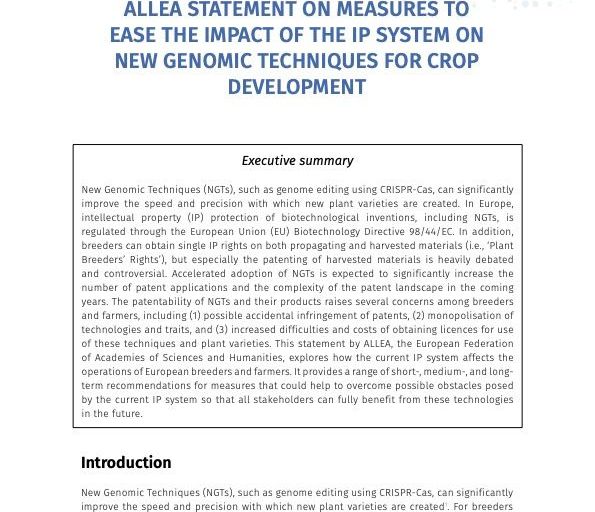Measures to ease the impact of the IP system on new genomic techniques for crop development
A new statement of European academies provides recommendations to help overcome obstacles posed by the current IP system so that all stakeholders can fully benefit from new genomic techniques.
New genomic techniques, such as CRISPR-Cas, entail a significant potential to contribute to sustainable crop development and food security. However, the current intellectual property system poses challenges for breeders and farmers: patenting harvested materials is controversial, and there are concerns about unintentional patent infringement as well as monopolisation of these technologies and the resulting plant varieties. After exploring how the current IP system affects the operations of European breeders and farmers, the statement provides recommendations to overcome possible obstacles. These recommendations were drafted by an expert task force of the All European Academies (ALLEA), co-chaired by Heinz Müller, member of the Swiss Academies’ Forum for Genetic Research and formerly with the Swiss Federal Institute of Intellectual Property. He commented on the statement: «The proposed measures could be implemented relatively quickly and should help to alleviate some of the challenges for breeders and farmers. However, it may be necessary to explore a more fundamental redesign of our IP system for food plants and related technologies.»
Dichiarazione Pagina: 11 p.
Contatto
Dr. Roger Pfister
Accademie svizzere delle scienze
Casa delle Accademie
Casella postale
3001 Berna



